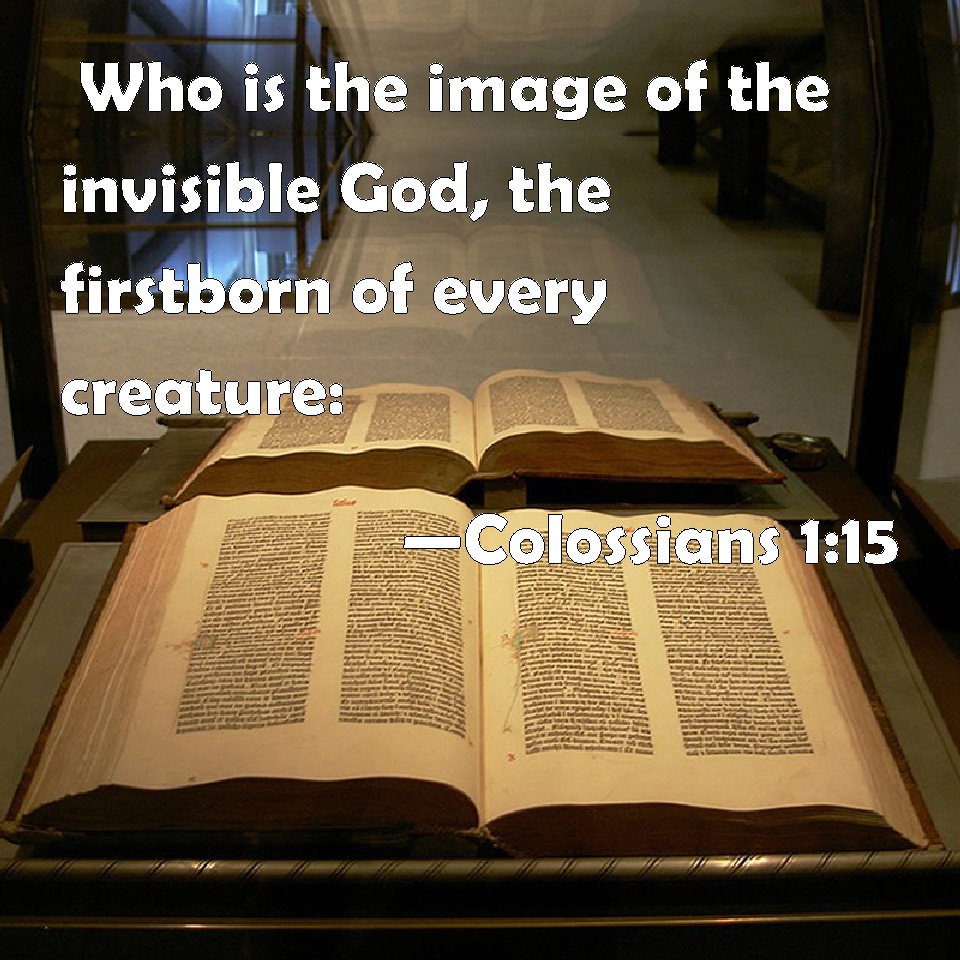“For God loved the world so much that He gave His only begotten Son, that whoever believes in Him should not perish but have everlasting life”—John 3:16 NKJV
On November 8, 2018, an article was posted on Patheos entitled, “Why John 3:16 Isn’t About The Crucifixion“:
In preparation for an upcoming online debate about PSA [Penal Substitutionary Atonement] Theory, I started wondering whether or not Jesus, or any of the Gospel authors, specifically communicated the Gospel as being about Jesus dying on the cross for our sins, or to appease the wrath of God, etc.
In the process of exploring this question, I started with John 3:16 because, growing up, I had always equated it with the crucifixion. However, I realized that this entire conversation has nothing to do with the crucifixion, nor does it even mention the death of Jesus at all.
Here’s what the verse actually says:
“For God so loved the world that He gave His only begotten Son, that whosoever believes in him will not perish but have everlasting life.”
Now, I think most of the time we have been told to read the word “gave” in this sentence to mean that “God laid Jesus down on the cross as an atoning sacrifice for the sins of the world and sacrificed Him for us.”
But, quite obviously, it does not say any such thing.
What it says is that God loved the world. He loved the world so much that he gave us Jesus and that if anyone would trust in him, and his teachings, he would live and not die.
I’ve also started to realize that whenever Jesus talks about “eternal life” or “will not perish”, he is not talking about the afterlife, or about what happens to us after we die.
In a very practical way, John 3:16 is a verse about how those who follow the path of Jesus will escape the coming destruction of Jerusalem and live beyond that event.
Here’s the deal: Jesus showed up as the promised Messiah at a time when the Jewish people were seeking a violent, revolutionary hero who would lead the uprising against their Roman oppressors. Instead, Jesus tells them to repent of this desire for violent revolution and warns them that if they live by the sword they will all die by the sword. He teaches them to love their enemies, turn the other cheek, walk the extra mile, and seek to overcome evil with good.
The promise, then, that Jesus makes is that they will have life that extends beyond the end of the age [that is, the end of the Jewish age], if they follow His teachings. If they refuse, then they will be slaughtered along with the destruction of the Temple, the end of the daily sacrifice, and the death of the Jewish Priesthood. [Which, by the way, is exactly what happened to those who rejected the message and path of Jesus].
So, the promise of John 3:16 is that those who trust in Jesus [that’s what the word “believe” really means], and put his teachings into practice, will not reap the fruit of rebellion [which is death], but survive the end of the age which Jesus promises will come within a single generation.
Forty years later, that prediction came to pass.
And, just as Jesus promised, those who followed the Way of Christ, escaped the “wrath of God” – which was simply the reaping of a harvest of rebellion against Rome – and the Christians who were in Jerusalem fled to the city of Pella months before the Roman army surrounded the city and began to lay siege to it.
In this way, the promise of John 3:16 was fulfilled: Those who put their trust in the Way of Christ – which was to love their enemies, bless those who cursed them, and do good to those who hated them – escaped the horror of AD 70. They did not perish but inherited life beyond the end of the age [or “eternal life” that extended beyond the present age].
Jesus never communicated the Gospel as saying a prayer so you could go to heaven when you die, or as a human sacrifice that would appease the wrath of God. What Jesus said the Gospel was is simply this: “Change your way of thinking! The Kingdom of God is here, right now! You can live under the rule and reign of God today. No need to wait until you’re dead. The Good News is for your life now, not for after you die.”
Here are just a few examples from Scripture:
“I must preach the good news of the kingdom of God to the other towns also, because that is why I was sent.” (Luke 4:43)
“The time has come,” he said. “The kingdom of God is at hand. Repent and believe the good news!” (Mark 1:15)
“Jesus went through all the towns and villages, teaching in their synagogues, preaching the good news of the kingdom and healing every disease and sickness.” (Matt 9:35)
“Jesus went throughout Galilee, teaching in their synagogues, preaching the good news of the kingdom..” (Matt 4:23)
Jesus taught this Gospel, and so did the Disciples, and the Apostles, including Paul and Peter and Philip, etc.
Why are we teaching any other Gospel than this one?
That’s a great question. (And another blog post).
Now let’s see what the Bible really says about John 3:16 and the Gospel:
“For God so loved the world that he gave his one and only Son, that whoever believes in him shall not perish but have eternal life.” (John 3:16 NIV)
The writer of the Patheos article falsely claims that John 3:16 isn’t about Jesus’ sacrificial death and his followers getting eternal life. He takes John 3:16 in isolation from its context. Not only taking the verse out of context, he also twists its meaning into something foreign to the writer’s intent, by claiming that doing what Jesus taught would enable them to live beyond Jerusalem’s destruction in 70 CE, without any promise of eternal life. A.nd, yet, eternal life is exactly what Jesus promised to those who are faithful, not just for those people who were living in the Jerusalem area back then, but for all people living at all times through history.
“No one has ever gone into heaven except the one who came from heaven—the Son of Man. Just as Moses lifted up the snake in the wilderness, so the Son of Man must be lifted up, that everyone who believes may have eternal life in him.” (John 3:13-15 NIV)
These verses prove it is all about God’s love for humankind, manifested in Jesus being put on the cross, or execution stake, and it also has to do with our response to it, resulting in our ETERNAL life or death!
“For God did not send his Son into the world to condemn the world, but to save the world through him.” (John 3:17 NIV)
“This mystery is that through the gospel the Gentiles are heirs together with Israel, members together of one body, and sharers together in the promise in Christ Jesus.” (Ephesians 3:6 NIV)
These verses show that Jesus’ death is not just for Jews living back then before 70 CE, but is for all time, and is for the salvation of the entire world of mankind, for whoever will believe, and ‘do the will of God’ (Matthew 7:21).
“By this gospel you are saved, if you hold firmly to the word I preached to you. Otherwise, you have believed in vain. For what I received I passed on to you as of first importance: that Christ died for our sins according to the Scriptures, that he was buried, that he was raised on the third day according to the Scriptures.” (1 Corinthians 15:2-4 NIV)
The writer of the Patheos article claims that ‘believing in Jesus Christ doesn’t save us from the wrath of of God’. However, the Bible indicates that it does, by saying:
“Whoever believes in the Son has eternal life, but whoever rejects the Son will not see life, for God’s wrath remains upon him” (John 3:36 NIV). Believing in God’s Son is contrasted with rejecting God’s Son. Of course, the ‘belief’ mentioned here is not just mental acknowledgment, but an active doing. Jesus made this very clear.
“Not everyone who says to me, ‘Lord, Lord’ will enter the kingdom of heaven, but only the one who does the will of my Father who is in heaven” (Matthew 7:21 NIV). read more
 Colossians 1:15 Who is the image of the invisible God, the ..." />
Colossians 1:15 Who is the image of the invisible God, the ..." />

